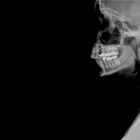Tingling and loss of feeling in your jaw can be concerning when you don’t know why it’s happening. There can be many causes of these symptoms, some serious and others less problematic, which can affect jaw movement. It’s important to learn what is causing these symptoms so you can seek effective treatment.
What Are The Causes of a Tight and Numb Jaw?
Tightness or numbness in any part of your body, including tight jaw muscles, is commonly associated with the nerves that populate that area. The same goes for sensations of these types in your face and jaw.
Stress and Anxiety
Stress and anxiety are common culprits behind jaw pain. When we are under stress, our body’s “fight or flight” response is triggered, causing our muscles to tense up, including the jaw muscles. This tension can lead to clenching and grinding of the teeth, known as bruxism, which can cause significant pain and discomfort in the jaw. Additionally, stress and anxiety can also lead to shallow breathing, which may result in mouth breathing and further exacerbate jaw pain.
To manage stress and anxiety-related jaw pain, it is essential to practice relaxation techniques such as deep breathing, meditation, and yoga. These techniques can help to reduce muscle tension and promote relaxation. Engaging in regular exercise, such as walking or jogging, can also help to lower stress and anxiety levels, thereby reducing jaw pain. Remember, taking time for self-care and finding healthy ways to cope with stress can make a significant difference in alleviating jaw pain.
Jaw Joint Disorders
Jaw joint disorders, commonly referred to as temporomandibular joint (TMJ) disorders, can cause significant pain and discomfort in the jaw. These disorders affect the temporomandibular joints, which connect the lower jaw to the skull. TMJ disorders can result from various factors, including injury, arthritis, or misalignment of the jaw.
Managing TMJ disorders often requires a multifaceted approach. Here are some tips to help manage TMJ disorders effectively:
- Practice good oral hygiene, such as brushing and flossing regularly, to maintain overall dental health.
- Avoid chewing gum or hard foods, which can exacerbate TMJ disorders and increase jaw pain.
- Use a mouth guard or splint to help stabilize the jaw joint and prevent teeth grinding.
- Engage in physical therapy, such as jaw exercises and stretches, to improve jaw movement and reduce pain.
- Seek professional help from a dentist or orthodontist if symptoms persist or worsen, as they can provide specialized treatments and guidance.
By following these tips and seeking appropriate care, you can effectively manage TMJ disorders and alleviate jaw pain.
Stroke or Trans Ischemic Attack (TIA)
Many people worry that when their jaw feels tight and numb, it can be an indicator of a stroke or TIA (also known as a “mini-stroke” or “warning stroke”). A stroke or TIA can indeed cause facial numbness, tightness or paralysis, including in your jaw area. A stroke or TIA is the result of a blood clot lodging in one of the smaller blood vessels in your brain, cutting off the blood supply to that portion of the brain. In the case of a stroke, symptoms don’t decrease and often worsen. Strokes are often also accompanied by a lack of coordination or loss of function on one side of the body, slurred speech, drooping of the face or loss of consciousness. TIAs are similar to strokes; however, the clot will dissolve and move, with symptoms often vanishing as quickly as they appeared. It’s important to seek immediate medical attention if you experience any of these symptoms.
Trigeminal Neuralgia
While it may have a complicated-sounding name, trigeminal neuralgia The trigeminal nerve serves to provide sensation to both sides of your face, and you have one for each side. It is the largest of the cranial nerves, primarily providing feeling to the face. In trigeminal neuralgia, patients experience lighting or electric-shock-like pain to one side of the face, anywhere along the three branches of the nerve (forehead, cheek, jaw). Damage to this nerve will not cause any appreciable weakness in the face, as you have a separate nerve in charge of facial movements. It passes through several structures near the base of your skull; sometimes, it can become irritated or compressed when it is too close to a blood vessel. This compression typically results in excruciating bouts of pain in the face, but can also manifest as numbness or a feeling of tightness in the facial muscles.
Tumors
Sometimes, if a tumor (either benign or cancerous) is growing too close to one of your facial nerves, it can compress the nerve, disrupting its ability to send signals and register sensation. There are even tumors that can grow specifically on nerves or the nerve sheath (the outer layer that protects the highly sensitive portion inside). Some of these types of tumors include Schwannomas and neurofibromas, among others.
Bell’s Palsy
Another condition that people report making their jaw tight or numb is Bell’s palsy, involving the facial nerve controlling movement to the face, which can cause a tight jaw sensation. Bell’s palsy usually occurs on one side of your face. It can cause numbness, a tight sensation and drooping in addition to drooling. It is the result of a swollen facial nerve and is thought to mostly be associated with a post-viral infection. Because its symptoms are often similar to that of a stroke, it’s important to have it checked to rule out other possibilities. Doctors can easily tell the difference between a stroke, which can cause weakness in the lower half of the face, and facial nerve issues, which involve the entire half of the face.
Let's build your treatment
path, together.
Treatment options for tight and numb jaw
Depending on why your jaw feels tight and numb, the treatment options vary. Mouth guards are often recommended to alleviate symptoms caused by teeth grinding and TMJ disorders. Below are some of the most common treatments for the various conditions that can cause these symptoms.
Stress and Anxiety Management
Managing stress and anxiety is crucial for alleviating jaw pain. Here are some additional tips to help manage stress and anxiety effectively:
- Practice relaxation techniques such as deep breathing, meditation, and yoga to reduce muscle tension and promote relaxation.
- Engage in regular exercise, such as walking or jogging, to help lower stress and anxiety levels.
- Ensure you get enough sleep and maintain a healthy diet to support overall well-being.
- Avoid caffeine and nicotine, as they can exacerbate stress and anxiety.
- Seek professional help from a therapist or counselor if needed, as they can provide valuable support and coping strategies.
By incorporating these stress and anxiety management techniques into your daily routine, you can reduce jaw pain and improve your overall quality of life.
Stroke/TIA
The most critical step in proper stroke/TIA care is a quick diagnosis. This will allow the necessary medications to be administered, along with cardiac monitoring. The term “time is brain” sums up the need for immediate and appropriate treatment. Drugs such as blood thinners are used to help break down clots that are causing the blockage, while they also help prevent new ones from forming. Surgical intervention may also help; a procedure known as carotid endarterectomy is used to remove the plaques that result in the majority of stroke-causing clots.
Trigeminal Neuralgia
Medications are used with limited success to help control the symptoms of trigeminal neuralgia in some patients; however, they tend to wear out and become ineffective. The most successful, long-term treatment for trigeminal neuralgia is a less invasive surgical procedure known as microvascular decompression (MVD). This surgery involves the neurosurgeon using specialized instruments to access the point of the compression. A small surgical device made of Teflon is placed between the nerve and blood vessel, eliminating the pulsing that causes irritation and inflammation of the nerve. In cases where there is no compression of the nerve, or patients are not surgical candidates, noninvasive treatments like Gamma Knife Radiosurgery may be an option.
Tumors
Tumor treatment to eliminate the symptoms of a tight and numb jaw can vary widely, depending on the type of tumor, its location and whether or not it is benign or malignant (cancerous). Options including surgery, medications and radiation therapy, may be considered.
Bell’s Palsy
Because Bell’s palsy is considered a temporary condition, corticosteroid treatment is often recommended to help alleviate the inflammation and provide some relief. Antivirals can be used in some cases, but their use is somewhat controversial, a viral infection may not always cause Bell’s palsy.
Regardless of the reason your jaw feels numb and tight, the first step towards relief is receiving an accurate diagnosis. Whether you start with your general practitioner or choose to seek out the advice of a specialist, such as a neurosurgeon, be sure you can get the answers you need to your questions. Finding good quality care in the New Jersey area shouldn’t be a chore — there are many highly qualified and compassionate doctors ready to help you get the best treatments possible.
Don’t let jaw numbness and tightness disrupt your life any longer. Take the first step toward relief by scheduling a consultation with one of New Jersey’s leading specialists today. Our team is here to provide the answers and care you deserve. Contact us now to get started on your personalized treatment plan!

About Dr. Anthony D'Ambrosio
Dr. Anthony D'Ambrosio is an accomplished neurosurgeon in North Jersey and a proud member of Neurosurgeons of New Jersey practicing primarily out of their Ridgewood office conveniently located on East Ridgewood Avenue. Dr. D’Ambrosio focuses his clinical practice on brain tumors, nervous system disorders, and facial pain disorders. He has expertise in a variety of complex surgical and radiosurgical techniques as well as minimally invasive procedures intended to successfully treat complex diseases of the brain. These techniques include micro-neurosurgery, microvascular decompression surgery and Gamma Knife radiosurgery. He's authored over 25 peer-reviewed journals and is the recipient of many awards.
Recent Posts:









